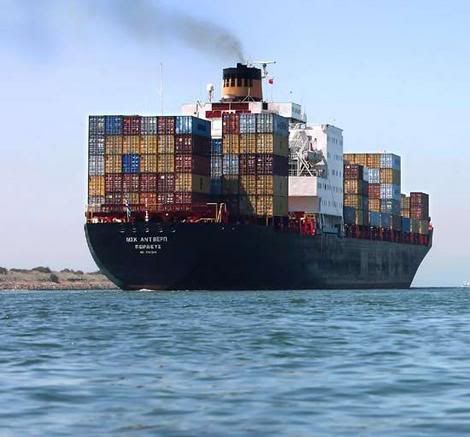Exports and Foreign Direct Investments
By Randell Tiongson on January 13th, 2010
Update as of Jan. 2010
Philippine exports break losing streak–rises in November
· Exports in November hit $3.69 billion, up 5.1% from a year earlier
· This is also +0.6% higher from October levels.
· For the January-November period, exports were down 24.6% to $35 bn.
· This is the first time exports grew since September 2008
· Growth was driven by the increase in electronics sales.
· Electronics exports in November rose 6.9% to $2.14 billion.
· Exports to the U.S., Japan and the Netherlands showed on-year gains of 7.5%, 2.7% and 56%, respectively.
FDI for Oct 2009 reached $59 M
· For Oct 2009, the country recorded a net inflow of $59 mln in foreign direct investment.
· A reversal from an outflow of $62 mln the previous month.
· Central bank said that a net-equity capital infusion of $41 mln came from Hong Kong, the U.S. and Japan.
· With the bulk of the investments allocated to the mining, construction and financial intermediation sectors.
· The positive investor sentiment resulted to an 18% rise in net inflow of FDI in the Jan-Oct period.
Economics 2009; Deficit & Inflation
By Randell Tiongson on January 7th, 2010
Philippines to incur Php 300 Billion in deficit for 2009
· According to the Department of Finance, the Philippines will likely report a budget deficit for 2009 of below PHP300 billion ($6.56 billion).
· One of the reasons for the deficit is that the Bureau of Customs likely collected PHP50 billion less than it targeted last year.
· A smaller shortfall than the PHP57 billion initially estimated.
· The budget deficit data are scheduled to be released later this month.
Inflation jumps to 8-month high in Dec
· For December, The country’s inflation rate went to an 8-month high of 4.4%.
· This is due to higher food and oil prices.
· Bringing the average inflation for 2009 to 3.2%; still with in the Central Bank’s estimate of 2.5% to 4.5%.
· The increase in inflation rate is said to unlikely push the central bank to hike rates soon.
· The Bangko Sentral has set an average inflation target of 3.5% and 5.5% for 2010 and 3% to 5% for 2011.
John Maynard who? (part 2)
By Randell Tiongson on January 4th, 2010
… con’t.
The Philippine government tried to copy the same cheap money scenario but the local game was played very differently. The government pegged the interest rate very low, yet the bank’s borrowing rates were still stiff and did not really trickle to benefit the economy the way the government wanted it to. As a result, while there was some modest economic growth , it was a laggard by other country’s standards. When global financial institutions came crashing, the local financial companies stood their ground with nary a scratch. I got to give it to our Central Bank and sound local management to some point… but to a large degree, our local financial companies breezed through the storm unscathed because of the huge margins they enjoy. Imagine borrowing money at very cheap rates (thanks to the government) and lending them at high rates – how can you go wrong?
The first world economies and the Philippines applied what John Maynard Keynes advocates with different results. First world experienced unprecedented growth but their economy later succumbed into what appears to be a vacuum. The Philippines were spared from the financial mess but continues to await some economic epiphany that seems to be a dream. In my view, both results are failures.
Now, was John Maynard Keynes right? Should the government continue to craft policies to influence the economy? It seems that now more than ever, the Keynesian theory is alive – dole outs, stimulus packages & low interest rates; and we still claim that we subscribe to a free market? Hmmm, perplexing. Why don’t we just let the economy take its proper course; allow recession so we can learn from it; fix our houses, weed out inefficiencies and review our priorities? Allowing to do so will definitely be a painful and a hugely unpopular move. Or, we can continue applying band aid solutions to a necrotic wound.
There’s only one economy that can experience consistent growth with no recessions: God’s economy. Maybe it’s time we start focusing our time and effort in participating in His economy.
“So if you have not been trustworthy in handling worldly wealth, who will trust you with true riches?” – Luke 16:11, NIV.
A blessed New Year to everyone!


